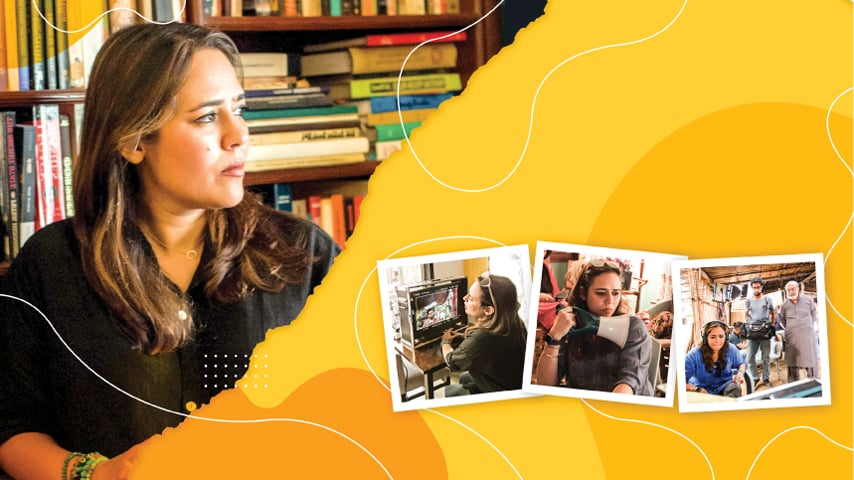
“After working 25 years in the business, I have become exhausted,” says Mehreen Jabbar.
I don’t find this confession surprising — especially since Mehreen has opted to tread unlikely paths in these 25 years. Her repertoire extends from critically acclaimed films to poignant, impactful stories in dramas. It must truly be exhausting trying to stand apart from the vacuous formulaic content that channels and producers prefer, the sort of content that brings in high ratings, but ends up being forgotten within days.
She continues, “I don’t want to direct a drama which will get ruined because a channel wants to extend it by several hours. I just want to tell stories in the best way possible without unnecessary elongation or gimmickry. If a story is best told within five to six episodes, then so be it. If 30 episodes are required, I’ll work with that as well.”
TV channels, of course, like to maximise on revenue from advertisements, by carrying on with a drama for at least a whopping 30 episodes, regardless of how unnecessary they are. The story is stretched out thin, with the aid of flashbacks and long, emotional scenes and, then, some more of the same. I ask Mehreen how she plans to get any work at all if she opts to be so succinct with her direction?
With two web-series already ‘on air’ and another on the way, it seems director Mehreen Jabbar is more enamoured these days of the freedom to explore new genres. Why has she stopped doing television dramas?
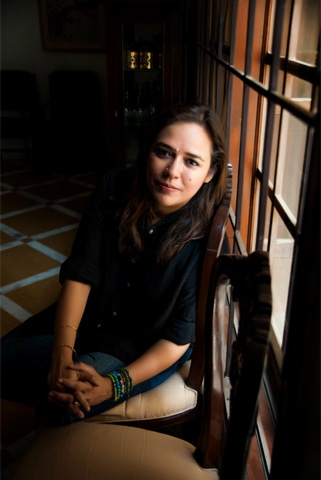
“That’s exactly what my mother says!” she laughs. “How will you earn, she asks me.”
Jokes aside, Mehreen Jabbar, with her trained directorial eye, can never really be short of work, can she? She has carved a reputation for herself which commands respect and, sooner or later, projects to her liking do come her way. It is, in fact, to discuss her most recent collation of work that I’m meeting Mehreen while she’s in Karachi. She flies back home to the US in a few more days, while two of her projects will start streaming out.
One of them is the web-series Ek Jhooti Love Story (EJLS), which has now released on the online streaming platform Zee5, and has been winning rave reviews. The series consists of 18 episodes because this was all that the story required, says Mehreen.
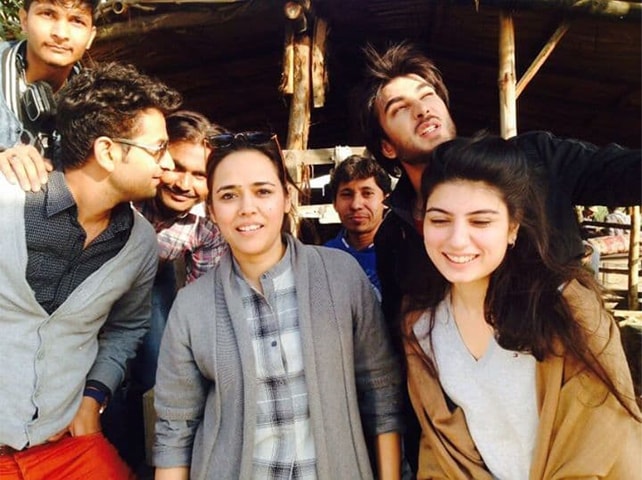
There’s also the flippant Candi Meray Dost Meray Yaar Season 2 totaling up to merely seven episodes. In the same spirit of brevity, the web-series Wehm, which releases on the digital media platform Rinstra, tentatively by the end of this year. That one is a psychological thriller consisting of five episodes of 10 minutes each.
Recalling a bitter experience from three years ago, Mehreen says, “The last drama serial I directed was Dil Kya Karay, back in 2017. It was originally supposed to be 24 episodes long and got completely destroyed when it was extended to 30.”
And yet, longwinded, heartrending storylines keep raking in ratings, I point out. It’s obviously an argument that Mehreen has encountered often and she has her answer ready: “TV can still air out its morbid dramas. It’s understandable that producers will want to work on projects that will be profitable for them. But if you offer people junk food, that’s all they are going to eat. Why not add other things to the menu as well? If there are five stereotypical storylines, why can’t the other five try to be different? I don’t believe that creative content should be banned at all but I do think that the Pakistani audience should be given alternatives.
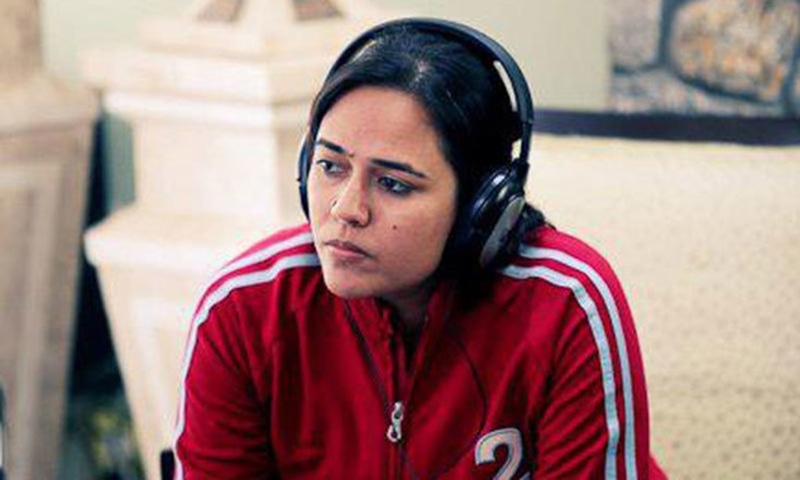
In countries where this industry is flourishing you wouldn’t be able to function if an actor says that ‘I can only come after 1pm’. The rest of the cast has to sit around waiting. It’s insulting to the craft to say that you can’t wake up even when you’re being paid for it!
“And it’s not like the writers and actors don’t want to work on different projects. The channel heads are just so limited in their vision that they don’t want to try anything different.”
Was working on a web-series less restrictive? “It gave me the freedom to explore new genres that channels may not consider viable right now,” she says.
Did it also give her the chance to work with less censorship? “The freedom to show skin or use abusive language is only needed if a project requires it. I wouldn’t unnecessarily add it to a script just because I’m working for the web rather than mainstream TV.
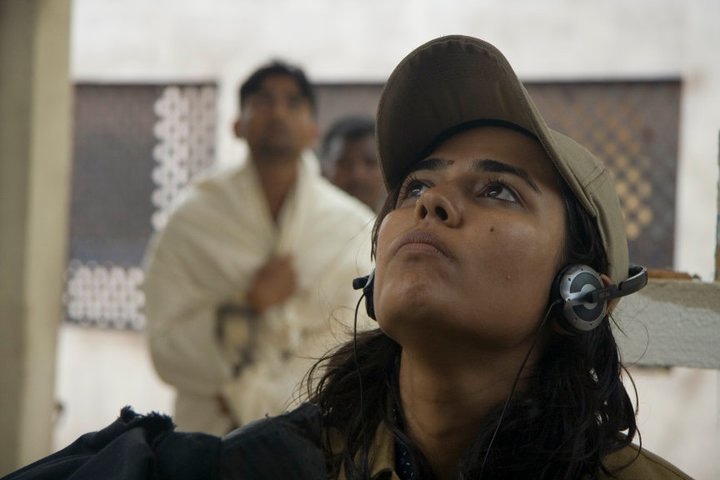
“There was also no pressure to cast stars or Insta-stars, as is often the case in television. I could choose my cast according to whoever I felt suited the roles. I made my selection based on the actors who I knew would perform well and also who were available on the dates that we were shooting. There was this fantastic camaraderie on the set with everyone sharing a great rapport. And fortunately, I didn’t have to deal with divas who were obsessed with hair or make-up and wanted their food ordered separately, from a luxury café, while the rest of us had biryani!”
It surprises me that Mehreen has had to deal with such airs and graces from young actors, especially since most of them seem so entranced by the notion of working with her. I ask her to share some horror stories and we launch into a rant on actors’ lack of punctuality. As an interviewer, it is something that I have faced often while dealing with the newer lot of stars, but it is shocking that a director of Mehreen’s calibre has had to endure similar experiences.
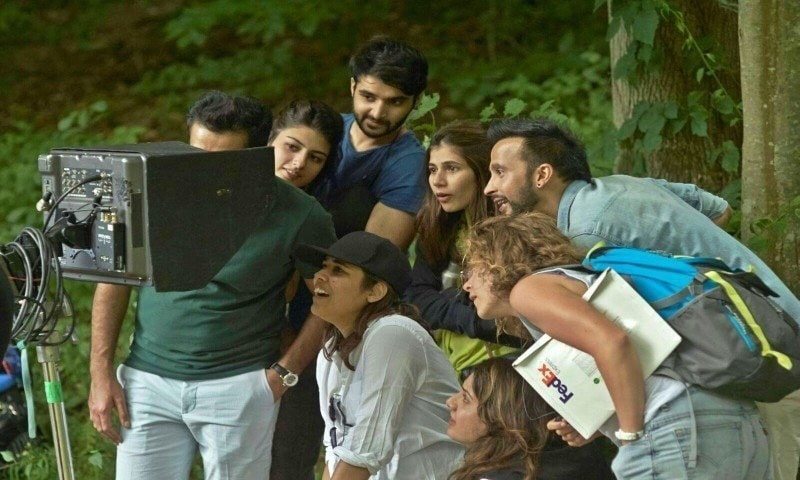
“Thankfully I haven’t had to deal with too many divas,” she says. “However, I do feel that there are those from whom the project is supremely important and they make sure that they are prepared. They come on time. They don’t make irrational demands and they are deeply invested in what’s happening on set at the time. Then there are those who are talented and are stars as well but who give little value to punctuality and are always on the phone or involved in many other projects at the same time. All I require from my team is that they give a project their very best and are punctual, respectful and willing to work with each other.
“The timing issue is really rampant,” Mehreen adds. “I had to let go of one actress because of it. In countries where this industry is flourishing you wouldn’t be able to function if an actor says that ‘I can only come after 1pm’, or making a fuss if the call time is 7am or 8am. The rest of the cast has to sit around waiting. It’s insulting to the craft to say that you can’t wake up even when you’re being paid for it! You can do an entire feature on this,” she suggests.
No one would be willing to name names considering that most current day stars have problems with punctuality, I point out. “You’d run out of printing space if you started naming names!” she agrees.
It’s not like the writers and actors don’t want to work on different projects. The channel heads are just so limited in their vision that they don’t want to try anything different.”
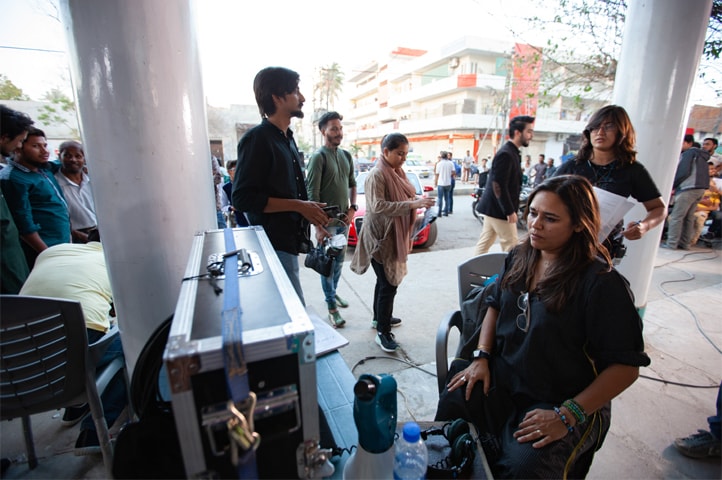
We move on to the fact that she has worked recently with Zee 5, an Indian online streaming platform that has spread its wings into Pakistan. Considering that creative collaborations with India have historically been thwarted by politics and are unable to last the long haul, does she feel that Pakistan’s equation with Zee 5 has promise?
“We’re all working together in good faith,” she says. “I’m a firm believer in cultural collaborations. Storytelling brings nations together and Pakistanis creating content for Zee 5, including myself, have been focusing on telling local, organic stories, working with local talent. There’s nothing wrong about that. Despite the ups and downs in the past, we have to remember that it was the Zee Zindagi channel which showcased Pakistani dramas to the Indian audience and opened the doors to a new industry for so many Pakistani stars.”
Will she be working on more projects with Zee 5? Mehreen can’t confirm at this point.

Also, will her next project also have a lighthearted, feel-good narrative? It seems to me that Mehreen has had a change of heart, diverting from the serious, heavy duty stories told by a Daam, a Rehaai or a hard-hitting Ramchand Pakistani and moving on to romance, lilting soundtracks and social commentaries simmering between the lines.
“I don’t know,” she laughs. “I can’t really define my work and I can’t say that I won’t work on a more serious storyline in the future. From 1994 onwards, I have told so many different stories. They just have to be compelling.”
Published in Dawn, ICON, November 15th, 2020














































Dear visitor, the comments section is undergoing an overhaul and will return soon.